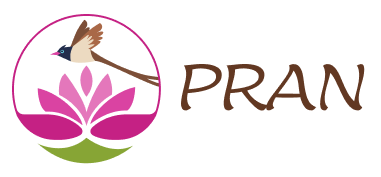The Gender Institute for Capacity Building
In our effort to support graduate and early career professionals, we collaborated with the University of Alberta, NorQuest College, the Northern Alberta Institute of Technology and colleagues and trainees from Nnamdi Azikiwe University in Nigeria to establish the Gender Institute for Capacity Building Program accessible here.
Funded by Carnegie Corporation and the University of Alberta, Capacity Building Institute began as a pilot study, delivering tailored programming for graduate and early career researchers at the University of Alberta and African universities. Incoming Queen Elizabeth Scholarship scholars are currently referring to the Gender Institute.
We intend to expand the Gender Institute by making it available in French as well as English, dependent on securing additional funding.

Gender Institute Winter 2025 Cohort
Collaborating with the Gender Institute and the University of Alberta, the Partnership for Research with African Newcomers engaged in a 20-week-long virtual research development program to develop collaborative, transformative research practices. Our cohort of 22 participants consisted of 13 Queen’s Elizabeth Scholars, 4 Graduate Research Assistants (GRAs) alongside 5 current graduate students, participating across 3 international time zones (EDT, MDT, and GMT +1) and enrolled at 10+ universities. Our diversity of expertise, experiences, and pathways created an intimate scholarly community that encouraged collaboration, networking, and academic growth.
Our program focused on three main areas of development: 1) research training, 2) community engagement, and 3) transformative leadership. Our research training focused on core skills such as reviewing literature, choosing methodologies, and research ethics. Participants utilized this training to produce research proposals to build upon in future grant/research applications. The community engagement portion focused on the community as a site of knowledge production and relationship building, encouraging participants to engage in accessible knowledge mobilization. Lastly, in our transformative leadership section, participants explored the leadership implications of identities shaped by social location and systemic barriers through an intersectional lens. This program consisted of participants completing online training modules comprised of overview lessons, multimedia, and peer-reviewed articles. Subsequent tri-weekly meetings were held via Zoom and facilitated by two of our amazing PRAN Research Team members, Dr. Thashika Pillay (Queen’s University) and Dr. Kwesi Yaro (University of Alberta), alongside the help of one of our GRAs, Mohamed Yusuf (Queen’s University).
At the end of our program, participants received a certificate of completion from PRAN and the Gender Institute, reflecting their belief in community-based, transformative research dedicated to alleviating barriers in the public sphere, such as education, medicine, mental health, etc. This year’s cohort created a collaborative environment through the program that will undoubtedly lead to a sustained network of emerging researchers interested in research-based innovation and collaboration.
